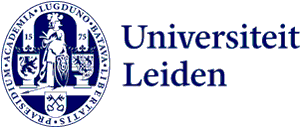
China's new heroes: ‘Sacrificing yourself for the community gives you status’
Sacrificing yourself for the greater good: in China, martyrdom and hero worship have been strongly encouraged by the Communist Party for the past decade or so. University lecturer Vincent Chang tells us more about this far-reaching development.

‘The worship of heroes seemed to be a thing of the past,’ says Chang. 'In Mao's time, revolutionaries who fought against imperialists and capitalists were revered, but that tradition had faded somewhat. This worried the Chinese leadership: after all, the Soviet Union collapsed because it turned its back on old values and goals. Now that China is on course to become a superpower, there is a fear of stumbling just before the finish line.'
About ten years ago, the Chinese government therefore launched a campaign to revive this hero worship, with a new type of hero in the leading role. Chang: 'Nowadays, it's no longer so much about class struggle and revolution, but more about values such as patriotism and community spirit. Contemporary heroes are people who have made some kind of sacrifice for a peaceful society, such as firefighters and other first responders, but also ordinary citizens who jump into a river to save a drowning child.'
Official status
‘This hero and martyr worship is official,’ says Chang. ‘, Government agencies at all levels follow an official, legally established procedure.’ If someone is named a martyr, their family can expect various benefits. Chang: ‘For example, they receive benefits, priority access to good education, help finding a job or a home, and free travel.’ It is also illegal to insult these martyrs or deny their heroic deeds.
This also raises their status in the community. ‘The heroes receive a diploma and a memorial stone in a martyrs' cemetery,’ says Chang. ‘People are then expected to pay appropriate tribute there on certain commemorative days, for example by laying flowers and bowing three times. Sometimes you also see schoolchildren visiting the families left behind. This is sometimes turned into a large-scale collective exercise: for example, they walk a long distance so that the children learn a little about hardship and effort, and remember it better.’
Two-way traffic
All this may sound like a party that regulates the lives of the population down to the last detail, but according to Chang, the reality is more complex. 'Many Chinese people have traditionally practised ancestor worship. The step from commemorating deceased ancestors to honouring fallen patriots is relatively small. It helps that many of the heroes are chosen and honoured at the local level, and their heroic deeds are tangible to the local community. Chang: ‘This creates a kind of social ecosystem, in which initiatives to honour heroes and martyrs are taken not only from the top down, but also from the bottom up.’
Digital developments play an important role in this. Chang: 'During the coronavirus pandemic, it was already possible to have a professional service provider lay flowers at a monument or grave and to be present yourself via a video link, but now many monuments have also been placed online, so that you can pay tribute to the martyrs entirely virtually. In addition, AI is being used to reproduce martyrs. You can then talk to heroes who died ten or twenty years ago. ’
Expansion abroad
This hero worship is not only expanding digitally. China is also focusing its attention abroad. ‘Embassies and consulates are expected to find places abroad where Chinese martyrs and heroes are buried and to erect or maintain monuments there. This ranges from the construction of a railway line in Tanzania and Zambia, where hundreds of workers and several engineers died in the 1960s and 1970s, to the NATO bombing of the Chinese embassy in Belgrade in 1991, in which three Chinese journalists were killed.
Initially, this foreign hero worship is aimed at the Chinese diaspora. 'That is why commemorations are regularly held abroad at places where heroes have fallen. In principle, these are intended to keep the “social core values” of patriotism and collectivism alive among the Chinese community there. But sometimes the host country also participates, as in Serbia. This serves a diplomatic purpose: to criticise NATO's misdeeds.'
In the Advancing Authoritarian Memory: Global China’s New Heroes project, Vincent Chang and a diverse group of colleagues from Leiden and elsewhere are investigating the ambitious and far-reaching campaign recently launched by the Chinese party state to update the pantheon of national heroes and martyrs and use it to unite and mobilise the nation during what it considers to be the critical final phase in its quest to become a modern global superpower. A workshop was held in Leiden in June with more than 20 project participants, during which contributions to a book expected to be published next year were discussed.
